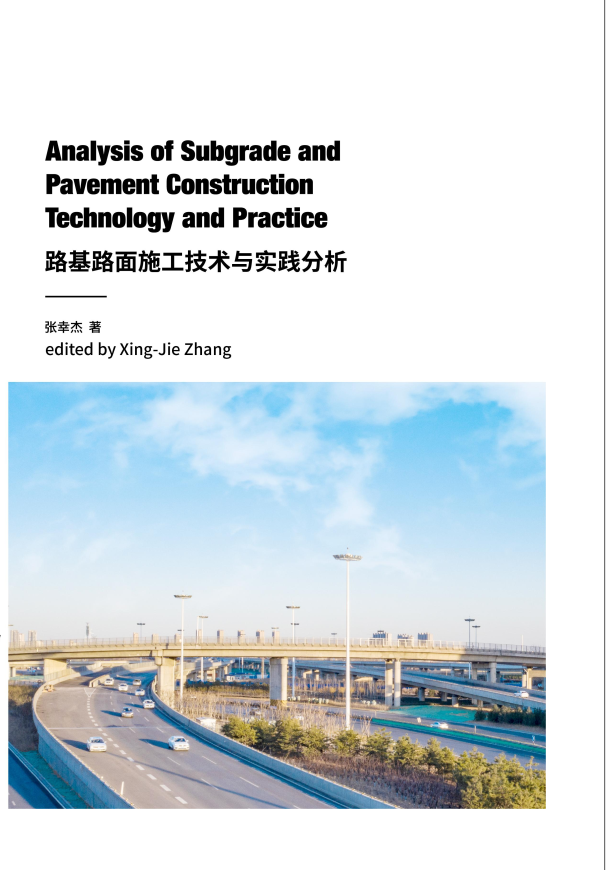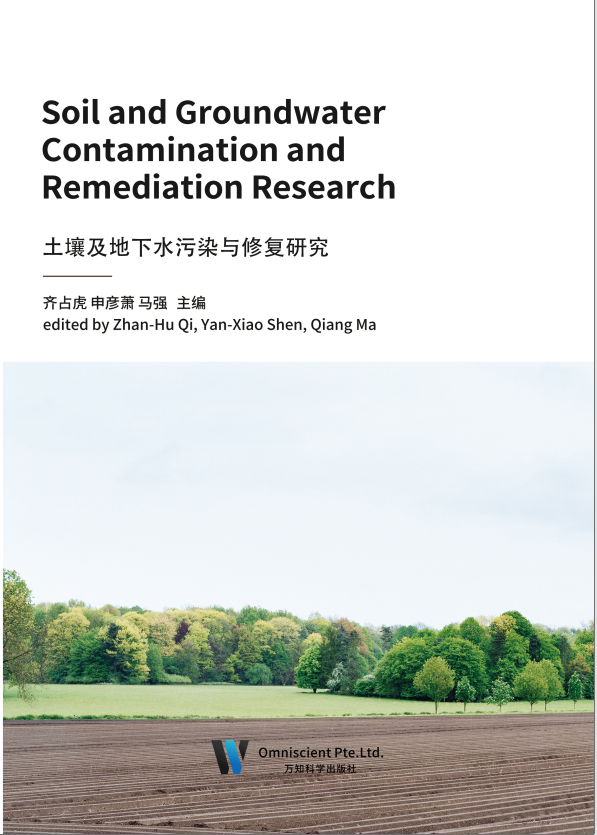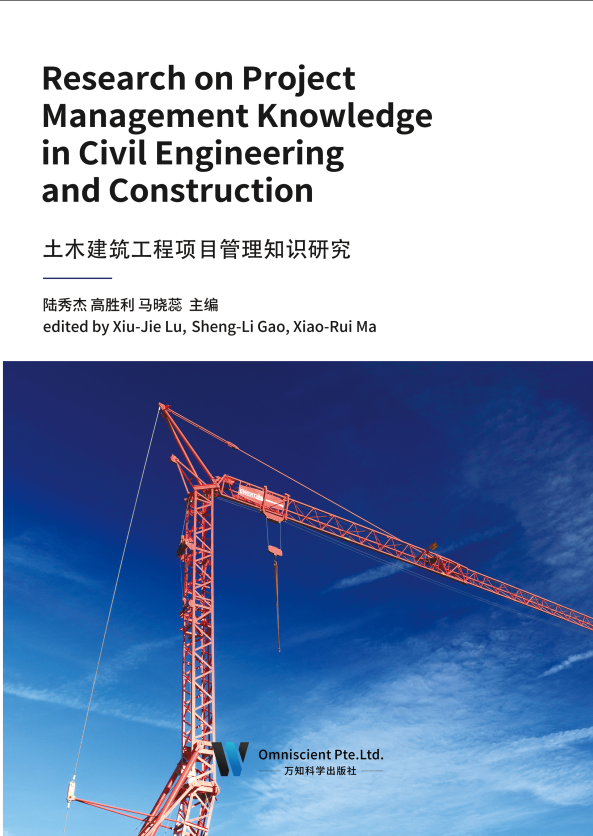
当下随着我国经济的飞速发展,车辆不断增多,对交通的需求也逐渐扩大,促使我国交通事业也飞速发展起来,目前我国城市道路的建设规模也在逐年增长,交通压力的提高要求城市道路施工中质量必须得到保障。在建设城市道路过程中,路基的质量直接关系到道路的整体质量,随着交通规模的扩大,公路中出现的问题也随之而来,严重威胁广大人民群众的行车安全。公路路基常年在自然环境中暴露,受到风吹日晒雨淋等自然环境的侵蚀,再加上交通给予的压力,使得路基容易变形,更严重者会使得路基坍塌,影响道路稳定。在公路的施工过程当中,最重要的施工环节是道路路基的施工,这是公路的基础,其质量直接关系到整个道路施工建设项目的整体质量。为保障道路质量,需要查明问题产生的具体原因,并做出相应的处理措施,这要求施工单位要不断总结经验,完善施工技术,严格按标准进行施工,保障路基的施工质量,为道路施工的后续工作做好基础保障。除此之外,公路工程建设是与我国广大人民群众息息相关的一项工程,随着经济的发展,人们对交通的需求量越来越高,因此在具体的施工作业环节中,必须严格按照国家相关的法律法规和技术规范进行施工,确保道路项目施工质量以及施工进度,完善施工新技术,在施工环节中找出病害并加以处理,提高施工质量。
公路能直接体现一个区域的经济发展水平和建设水平,在其施工作业过程当中,会受到很多因素的影响,为确保高速公路在运行过程中能够安全稳定,施工单位的工作人员应该从实际出发,针对施工过程中路基出现的几种常见病害情况,制定相应的解决措施。在公路建设当中,路基一方面承受自身和道路本身给予的压力,另一方面还要承受路面交通的压力,如果在具体作业环节,没有针对性的处理措施,会导致路基长时间存在病害情况,影响道路的质量和使用年限。
本书以路基路面施工技术与实践为研究主题,主要介绍了路基路面工程理论,让读者从基本概念、特点等方面更深刻透彻地了解,为路基路面施工奠定扎实的基础;并在路基工程施工技术、路基防护与加固、路面基层施工技术、路面面层施工技术以及道路附属工程施工及养护等相关内容上进行重点讲述。本书充分体现了科学性、发展性、实用性、针对性等特点,可供从事公路路基路面施工的工程技术人员借鉴参考,亦可供相关专业大中专院校师生学习使用。
由于施工技术日新月异,施工理论不断发展,许多施工技术和方法可能有待进一步研究和探讨。加之水平有限,经验不足和时间紧张,书中谬误和疏漏在所难免,敬请广大读者批评指正。

由于处于以城市化为中心的经济增长阶段,我国的城市普遍存在中心区交通拥堵、空气质量下降、停车场地缺乏等一系列严重的问题。随着交通基础设施建设、维护和运营技术的发展,通过大力发展公共交通解决日益严重的城市交通问题已成为共识。城市轨道交通具有运能大、速度快、安全准时、节省能源、环境污染小的特点,是城市公共交通系统的骨干。目前,我国已进入城市轨道交通建设的高峰期。
从原来只满足群众的交通需求,逐步转变为既能够满足较大的交通需求,又能在城镇化进程中发挥巨大作用。需要深入分析和探讨、解决轨道交通建设转型过程中出现的问题,并在新型的发展路线下建立起具有中国特色的、可促进我国城镇化发展过程中轨道交通建设发展的综合体系。
轨道交通在调整城市空间布局、加强土地开发利用、优化城市交通结构、缓解城区地面交通压力、减少环境污染和能源损耗等方面都具有至关重要的作用。因此,在加快城镇化建设的进程中,发展轨道交通已经成为刚性需求。
本书内容着重阐述了轨道交通概论、轨道交通系统组成、轨道交通项目建设的相关研究、轨道交通线网规划理论与方法、轨道交通需求预测理论与方法、轨道交通车站规划与设计、轨道交通枢纽与换乘设计,以期使读者在系统掌握城市轨道交通规划基础理论的前提下,充分掌握关键技术,有效地指导城市轨道交通规划等前期工作。
其次通过介绍明挖隧道施工法、浅埋暗挖施工法、盾构施工法、其他特殊施工方法、轨道交通工程施工风险管理和城市轨道交通环境控制与安全管理,向读者进一步阐述如何灵活运用基础理论解决实际的交通规划问题,以期帮助读者加深对基础理论的理解和提高应用能力。

随着工农业的快速发展和人民生活水平的提高,工业及城市生活污水排放量逐年增加,如何将污水资源化一直是人们关注的问题。我国是一个水资源严重缺乏的国家,使用处理后的城市污水进行农田灌溉是一个缓和用水紧张局面的可行方法。工业及城市污水具有量大、集中、水质较稳定等特点,是一种潜在资源。将处理过的污水一定程度回用于农田灌溉是污水资源化的有效途径,既减少了污水对环境的污染,又促进了农业生产,是实施可持续发展战略,促进水资源和生态环境,社会经济协调发展的重要举措。
污水灌溉是将经过处理满足灌溉水质标准要求的污水作为灌溉水源。污水富含养分及有机质悬浮物,污水灌溉可节省肥料,降低成本,提升农田土壤肥力。污水灌溉可一定程度上解决农灌用水不足问题,但现阶段我国不少污灌区存在有害物质超标情况,这会引发食品安全、生态污染等一系列问题,必须对污水进行严格处理,保证灌溉水质。科学合理地利用污水灌溉,可以缓解日益紧张的水资源供需矛盾,充分利用污水的水肥资源,提高经济效益,保护生态环境。
借此机会,本书对污水资源化与污水灌溉技术展开详细研究,书中首先的城市污水污泥的来源、性质及其危害作了简单阐述,并介绍了污水处理的主要设施、设备及作用;本书进一步对铝合金建材加工行业废水处理和回用和污泥能源化利用技术进行了探究,对基于“碳源浓缩—氮源回收”的新型污水资源化工艺进行了详细的分析和研究;最后,从科学理论和实践出发,书中又对土地整理技术在污灌农田修复中的应用、污水灌溉和氮肥施用对农田土壤重金属生物有效性影响、污水灌溉对生态环境的影响评价做了系统性的分析和探讨。希望本书能够为相关领域的工作和研究人员提供经验和借鉴,从而推动我国口污水资源化与污水灌溉技术的进步与发展。

土壤与地下水环境作为环境介质的一部分,与大气环境和地表环境进行物质和能量的交换。由于土壤与地下水环境的隐蔽性,人们对土壤与地下水污染的认识没有大气环境和地表环境污染直接和敏感,因此,对土壤与地下水环境的关注度滞后于大气和地表环境。通常人们认为,土壤是地表松散的固体材料,土壤中的污染物是不移动的,可以与固体废弃物一样处理;地下水是液体,类似于河水,将地下水与地表水等同看待,这些认识是非科学的朴素认识。固体废弃物是人类活动的产物,是一种污染源,而土壤是天然的环境介质,土壤中的物质是变化的,土壤内存在各种矿物、微生物和微小生物、水分、各种养分、气体和有机挥发物质,能够生长植被,是一种多相多组分的复杂体系。土壤中的污染物随土壤环境的变化、污染物的形态和重金属的价态也随之发生变化;土壤中的污染物随降水入渗和土壤中水分迁移而向地下水迁移;土壤中的有机污染物经微生物分解可能变化成挥发性有机物排放到大气中,目标污染物也可能降解殆尽而转化成中间产物。
可以说,土壤与地下水中污染物的迁移转化十分复杂,调查、监测、风险评估以及修复技术的选择一定要考虑地层岩性、结构、水文地质条件、污染物的类型和历史。土壤污染不同于固体废弃物污染,地下水环境不同于地表水环境。正是由于土壤与地下水污染物相互转化,具有相同的地下环境,其原因复杂多样,所以本书通过对土壤及地下水污染的研究,从而对症下药地进行修复,旨在为土壤与地下水的改善提供理论。

土木工程是一项涉及范围很广的综合性学科,由于其施工对象都是与人们生活、生产等领域息息相关的各种工程设施,因此土木工程项目的施工在我国工程建设中发挥着重要作用。同时,在土木工程项目的建设过程中,涉及的施工技术种类复杂,施工机械设备、材料及人员的数量众多,施工周期普遍较长,每个项目想要顺利完工都必须由专业的项目管理团队进行质量、进度、成本、风险等多方面、多角度的监督和控制。
通过本书,掌握建筑工程项目管理的基本理论和建筑工程项目进度控制、质量控制、安全控制和成本控制的基本方法,熟悉项目组织管理、合同管理、信息管理、风险管理、采购管理等基础知识,同时熟悉各种项目管理技术、方法在建筑工程项目上的应用特点。本书旨在建立一套建筑工程项目管理所需的知识、技术和方法体系,通过实训巩固,进一步培养学生发现、分析、研究、解决建筑工程项目管理实际问题的基本能力,为以后的工作打下坚实的基础。
本书紧紧围绕高等教育土建类专业的人才培养方案,同时以建造师考试大纲为参考,注重理论知识适度,强化实践动手能力的思路,系统设计教材的内容结构。为了更好地引导学生明确学习目标,在编写中引入典型案例,并提供大量的思考题和实训题。既保证全书的系统性和完整性,又结合高等教育培养应用型和实用型人才的特点,理论联系实际,更好地解决“学以致用”问题。由于土木工程施工与项目管理在我国仍处于不断发展与完善的过程中,需要在实践中不断总结,书中难免有不当之处,恳请读者予以批评指正。